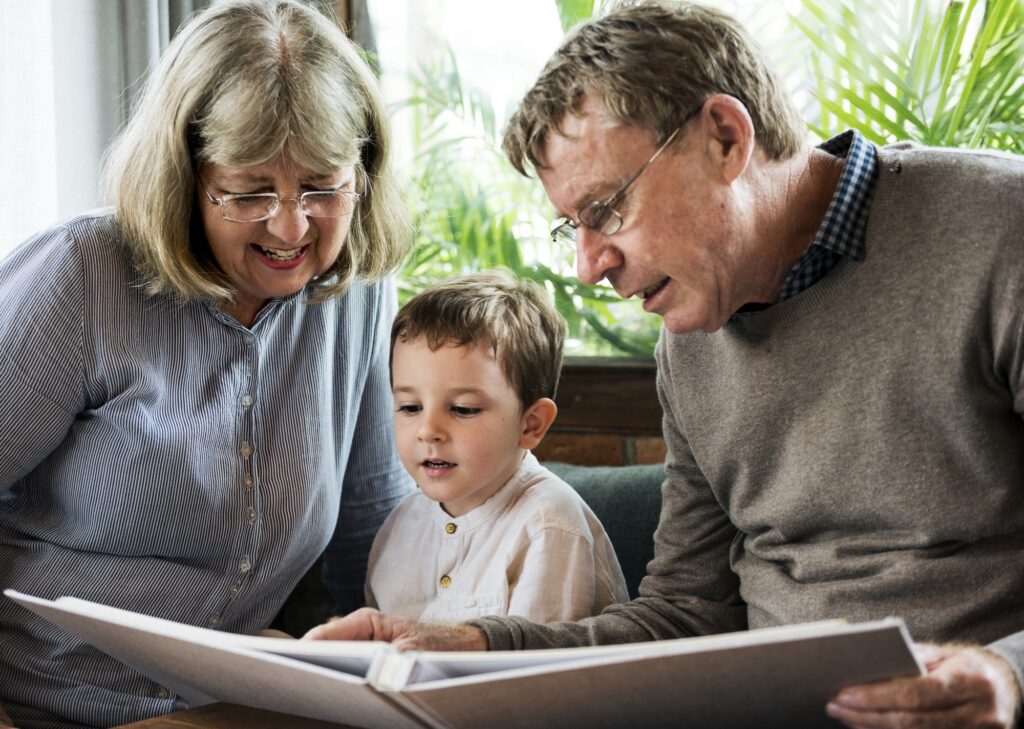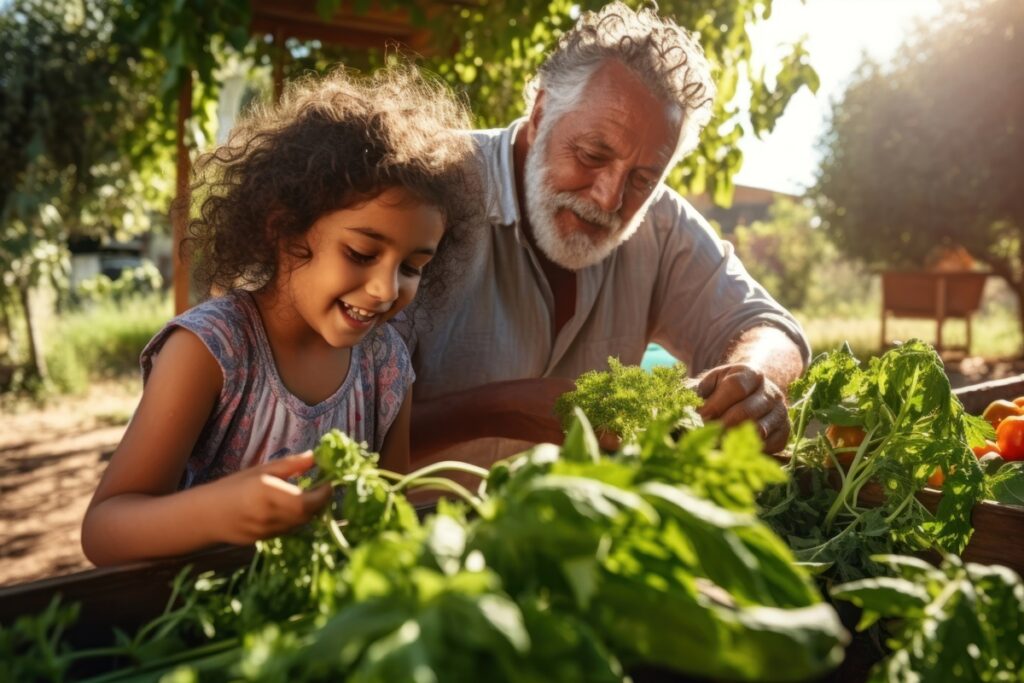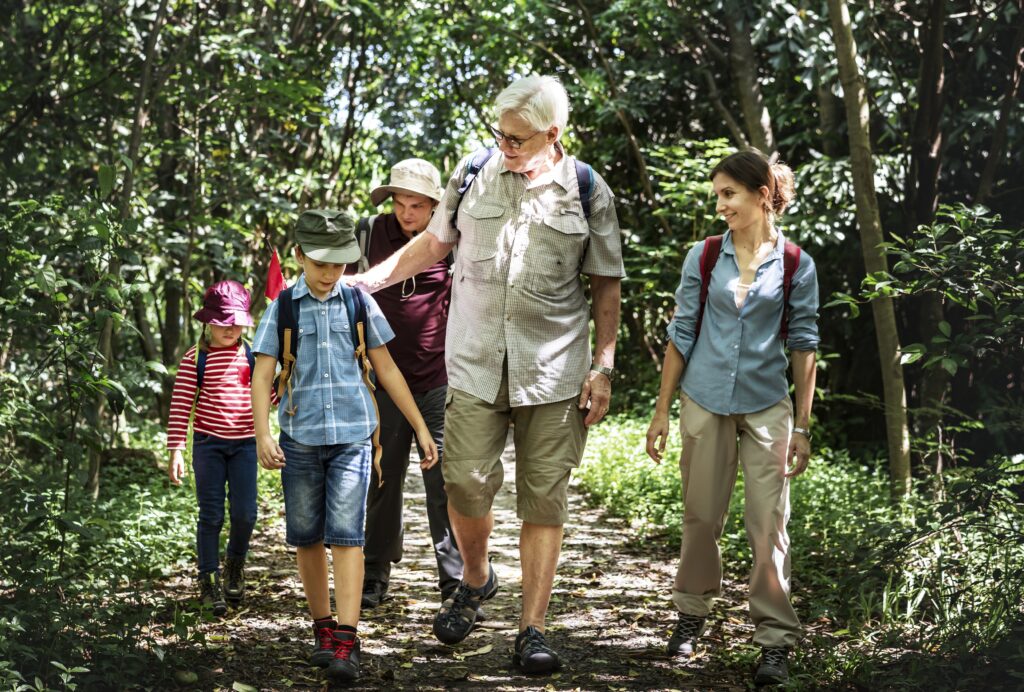A few years ago, I came across an old photo of my great-grandmother. She’s standing on the rickety, wooden porch of what could only be described as a decrepit shack, holding a bucket of milk and pouring it into a contraption to separate milk from the cream. Also on the porch with her are two young boys, and you have to know that spending time with Grandma included lessons on how to milk a cow and then process that through a cream separator.
My dad and his brothers had a rich childhood, gleaning ages-old wisdom and skills from grandparents who were ready and eager to teach them. In a world of slick smartphones and addictive video games, that wisdom and those skills might be lost forever if grandparents and other adults don’t step up and actively teach them.
Think about your life and list the practical skills you’ve learned along the way. Even if you’re separated from your grandchildren, nieces, and nephews by many miles, you could teach them long-distance with some basic video skills. My dad regularly sends out short videos showing off his fig tree propagation success!
Wondering where to start? Here are a few suggestions.
Cooking and Baking
What family recipes could you share with your grandkids? One of my most treasured recipes is for “Shlumgum” written in my nana’s cursive handwriting. Does the younger generation in your family know how to cook from scratch and bake a loaf of bread? Food is often connected with family history and cultural traditions. Now would be a good time to track those down, dust them off (figuratively speaking!), and invite a few young ones over to cook together.

Storytelling
You have a treasure trove of stories from your own childhood and stories passed down to you from your grandparents and other adults. Those are too valuable to lose in the ever-encroaching mists of time, and children of all ages will not only love those stories, but you can be sure they will tell them to their own kids someday. Even better, put those stories in writing and self-publish them. Even a simple PDF that can be shared among family members will one day be priceless.
Using Hand Tools
Deftly handling a screwdriver, hammer, or other tools is an acquired skill. At first, it feels awkward. You’re not sure how much pressure and leverage to use. The tool slips or misses its mark again and again. Such simple tools, but mastering them isn’t so simple. These are skills that aren’t only used over a lifetime but could lead to a career in a blue-collar trade. And they’re skills that are fun to learn and pass on to the younger generation.

Gardening
Gardening takes time, patience, and knowledge gained over many years. A gardener enjoys the great outdoors, sunshine, fresh air, nurturing plants, and watching them grow, and so do children. They just need to be invited into the garden and taught how to grow flowers and vegetables.
Heritage Handicrafts
It’s a lucky child whose grandma or grandpa is skilled in knitting, crocheting, embroidery, sewing, and other crafts. Not only do these skills produce practical and beautiful results, but they also help improve hand-eye coordination and fine motor skills. Add in other skills such as soap-making, herbal remedies, and woodworking for a truly enriched education and bonding experience.
Home Repairs
Every time you can fix your own sink blockage, paint a room, change a tire, or repair a bicycle chain, you have someone to thank for teaching you that skill. Schools no longer teach these practical skills; if we don’t teach the younger generation, who will? Make a list of everything you know how to repair, typical home improvement projects, and car maintenance. You’ll likely end up with an impressive list, and now you just need a student or two!
Good Manners and Etiquette
“Keep your elbows off the table! Don’t talk with your mouth full of food! Open doors for ladies!” Good manners never go out of style, and the person who practices them demonstrates respect and consideration for others. Etiquette includes knowing which fork to use in a formal setting and how to introduce oneself appropriately. These skills are subtle, but they make a lasting impression in social settings as well as on the job.

Rugged Outdoor Skills
Camping, fishing, backpacking, cooking over a campfire—such adventurous activities, and yet in our modern world, fewer and fewer children ever learn these skills, and they are all so important for fostering an appreciation for nature. Not surprisingly, many children today are fearful of being out in nature—the vastness, the quiet, the pitch-black nights. Again, if you don’t pass along these skills and this knowledge, who will?
Animal Husbandry
Chickens, goats, honeybees, ducks—whatever experience you might have with caring for livestock, don’t keep it to yourself. Children are naturally drawn to animals, and learning how to care for another living creature instills a sense of responsibility and compassion. They learn the importance of meeting the needs of another being and sensitivity toward its needs and emotions.
Musical Skills
If you have any musical skills, whether it’s playing an instrument or singing, or just a love of music in general, this is ideal for children of any age. Love jazz or another genre of music? Pass that along to the next generation. Let them listen to your favorite composers and performers. Can you play an instrument? Music lessons can be expensive and out of reach for many families, but lessons taught by a close friend or family member not only teach the skill but reinforce relationships.
Nature Exploration
Nature walks, bird watching, tree identification, and learning the difference between a squirrel and a chipmunk teach observation skills as well as an appreciation for nature and its inhabitants. Enjoying the beauty of nature and disconnecting from technology inspires creativity and curiosity.
Cultural Traditions
Every child has a rich heritage of multiple cultures, but too few ever learn about them. Share those traditions and stories and pass them along just as they were passed down to you. Family roots, language, customs, and holidays are worth preserving by sharing them with the next generation.
Too often, we dismiss the value of what we know and have experienced, but each one of us is an encyclopedia of unique memories, impressions, and lessons learned that can enrich our loved ones, especially the youngest. (Source)
By Lisa Bedford. Lisa Bedford is the author of “Survival Mom: How to Prepare Your Family for Everyday Disasters and Worst-Case Scenarios.” She founded The Survival Mom blog in 2009 and continues to teach families around the world how to be prepared for life’s challenges.

